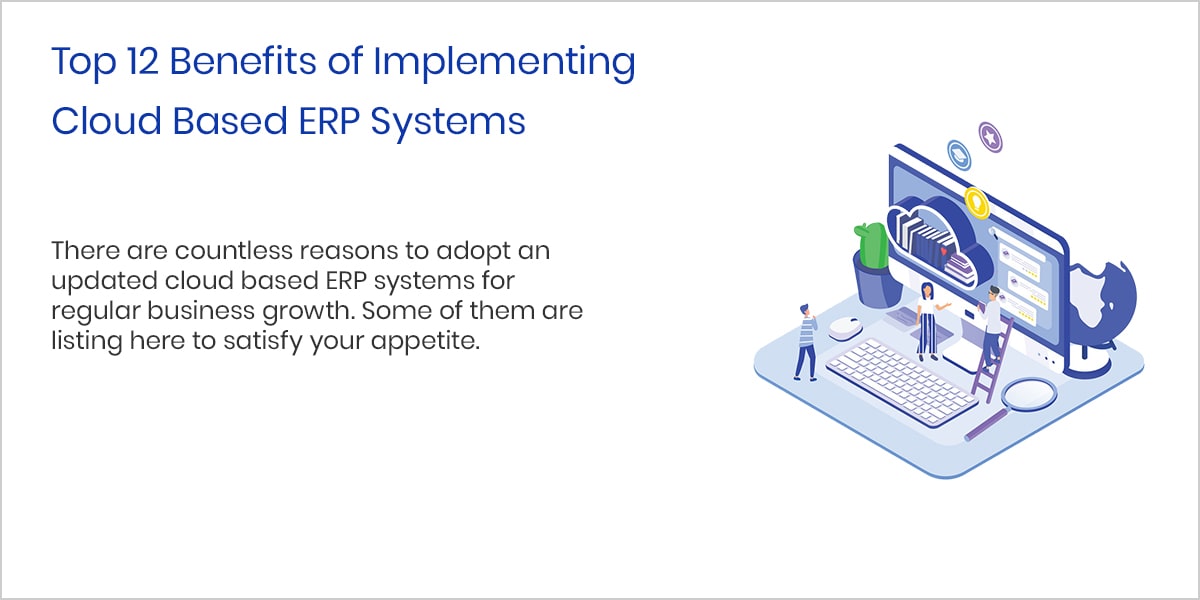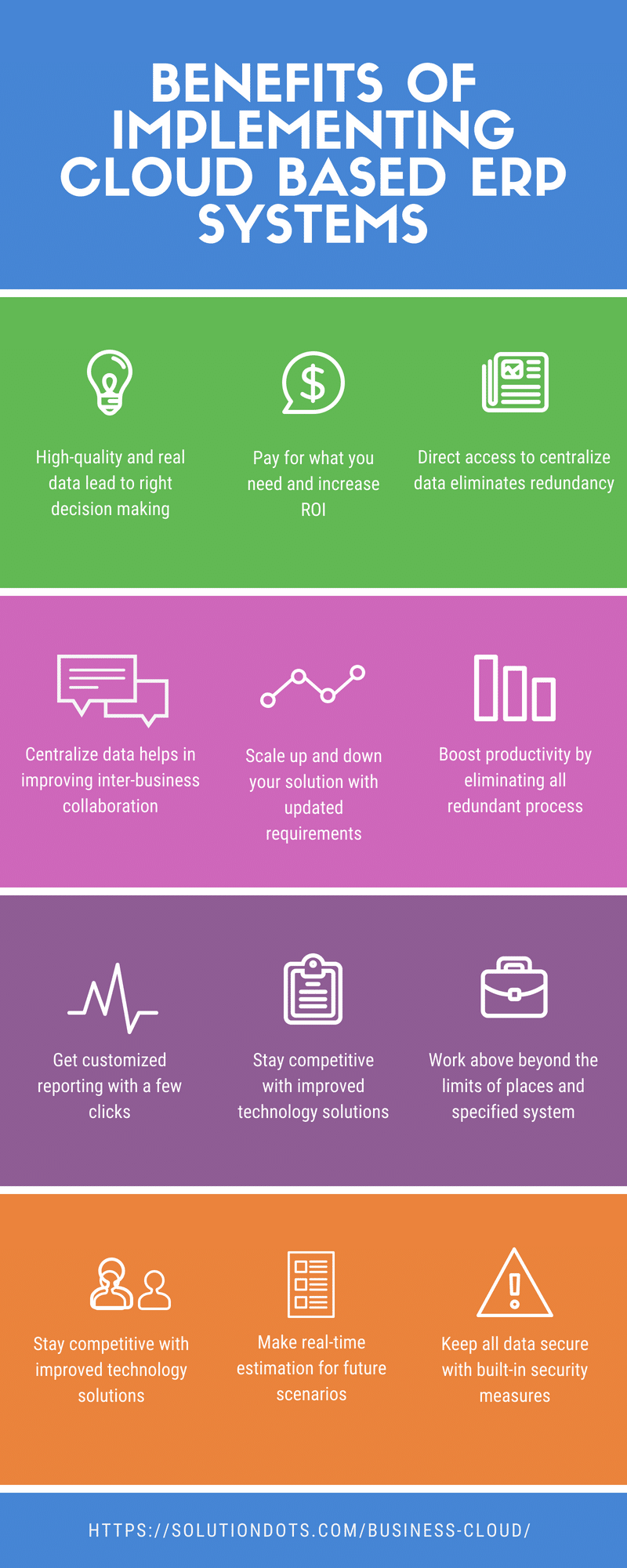Top 12 Benefits of Implementing Cloud Based ERP Systems
- ERP (Cloud) September 12,2023

Cloud-based ERP systems have revolutionized the way businesses operate by offering a host of advantages over traditional on-premises solutions. From cost savings to improved collaboration and agility, there are numerous benefits that organizations can harness by implementing cloud-based ERP systems.
In this article, we will explore the top 12 advantages that come with adopting cloud-based ERP, highlighting how they can enhance efficiency, streamline processes, and drive success in today’s digital era.
There are a lot of benefits of implementing cloud based ERP systems. These countless advantages will positively contribute to organizational success and goal achievement.
There is no wonder ERP software are beneficial enough for improving business productivity, streamlining processes, decreasing costs, centralizing data from different departments and enable real-time reporting.
Implementation of cloud-based ERP solutions are not an easy decision for any business but its countless advantages and rapidly growing market demand has made it easier. Let’s have a look to top 12 advantages of an ERP software implementation.

There are benefits of implementing cloud based ERP system:
- High quality and real data lead to the right decision making
- Pay for what you need and increase ROI
- Direct access to centralize data eliminates redundancy
- Centralize data helps in improving inter-business collaboration
- Scale up and down your solution with updated
- Boost productivity by eliminating all redundant process
- Get customized reporting with a few clicks
- Stay competitive with improved technology solutions
- Work above beyond the limits of places and specified system
- Stay competitive with improved technology solutions
- Make real-time estimation for future scenarios
- Keep all data secure with built-in security measures
In conclusion, implementing cloud-based ERP systems offers numerous benefits that can significantly enhance the efficiency and effectiveness of an organization. The top 12 benefits of adopting cloud-based ERP systems are as follows:
- Cost Savings: Cloud-based ERP systems eliminate the need for expensive hardware and infrastructure investments, reducing upfront costs and ongoing maintenance expenses.
- Scalability: With cloud-based ERP, organizations can easily scale their operations up or down to meet changing business needs, without the need for significant capital investments.
- Flexibility and Accessibility: Cloud-based ERP systems provide employees with the ability to access data and perform tasks from anywhere at any time, promoting remote work, collaboration, and improved productivity.
- Integration and Centralization: Cloud-based ERP systems enable the integration and centralization of business processes, data, and applications, leading to better visibility and control across the organization.
- Real-Time Data and Analytics: Cloud-based ERP systems offer real-time data and analytics capabilities, enabling organizations to make informed decisions quickly and accurately.
- Enhanced Security: Cloud-based ERP systems often provide robust security measures, including data encryption, regular backups, and disaster recovery plans, ensuring the safety of critical business information.
- Automatic Updates: Cloud-based ERP systems handle software updates and patches automatically, eliminating the need for manual installations and reducing downtime.
- Improved Collaboration: Cloud-based ERP systems facilitate seamless collaboration among different departments and teams, enabling them to share information, work together on projects, and streamline workflows.
- Streamlined Processes: Cloud-based ERP systems automate and streamline various business processes, reducing manual errors and enhancing operational efficiency.
- Enhanced Customer Service: Cloud-based ERP systems provide organizations with a unified view of customer data, enabling them to deliver personalized services, resolve issues quickly, and improve overall customer satisfaction.
- Better Compliance and Governance: Cloud-based ERP systems often come with built-in compliance and governance features, helping organizations adhere to industry regulations and standards.
- Innovation and Agility: Cloud-based ERP systems enable organizations to stay updated with the latest technological advancements and quickly adopt new features and functionalities, fostering innovation and agility.
By implementing cloud-based ERP systems, organizations can reap these benefits, improve their overall performance, and gain a competitive edge in today’s fast-paced and ever-evolving business landscape.









 Saudi Arabia (English)
Saudi Arabia (English) United Kingdom
United Kingdom Global Site
Global Site